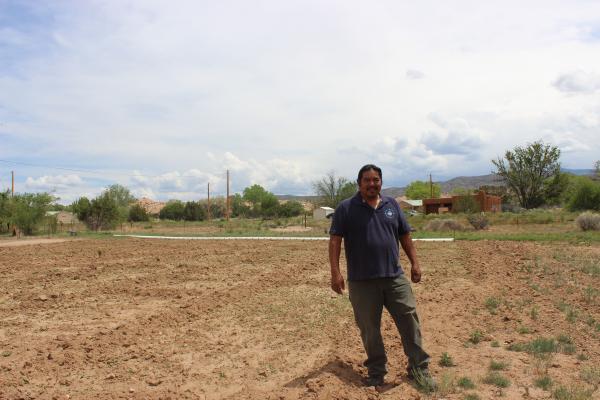First Nations Development Institute announced June 3 that it is divying up $400,000 in grant awards to 12 Native organizations. The grants, made possible by the W.K. Kellogg Foundation of Battle Creek, Michigan, were awarded under First Nations’ Native Agriculture and Food Systems Initiative.
The NAFSI grant program is intended to help tribes and Native communities build sustainable food systems, increase healthy food access and awareness, and stimulate tribal economic growth and development. The 12 grants range between $20,300 and $37,500 to the following tribes and Native organizations:
Bay Mills Community College, Brimley, Michigan, $37,500
The grant will support the Waishkey Bay Farm 4-H Club and Youth Farm Stand. Waishkey Bay Farm is a sustainable farm and orchard located in Michigan’s Upper Peninsula. The club’s purpose is to recruit tribal youth to help grow, harvest and market fruits and vegetables.
Choctaw Fresh Produce, Choctaw, Mississippi, $37,500
The grant will be used to expand a small community garden. Food from the garden will be sold at the casino restaurant. Additionally, project organizers plan to sell surplus fruits and vegetables throughout the community via a mobile farmers’ market. The project aims to increase access to healthy food on the reservation while creating jobs and stimulating economic development.
Columbia River Inter-Tribal Fish Commission, Portland, Oregon, $28,125
The grant will assist tribal fishers as they build new relationships with tribes to develop and expand market opportunities for salmon products. The project aims to increase opportunities for the fishers of the Columbia River tribes.
Diné Community Advocacy Alliance, Gallup, New Mexico, $20,300
The funds will be used to help the alliance support the Healthy Diné Nation Act and Junk Food Tax, which was vetoed by the Navajo Nation president in February 2014. The act seeks to impose a 2 percent sales tax on sugar-sweetened beverages and junk food, and eliminate sales tax on fresh fruits and vegetables.
Lac Courte Oreilles Ojibwa Community College, Hayward, Wisconsin, $37,500
The grant will be used to build capacity and expand the college’s Sustainable Agriculture Research Station (LSARS). LSARS will increase healthy food access by providing a mobile farmers’ market, online and telephone food-ordering service, and EBT-SNAP purchases.
Lakota Ranch Beginning Farmer/Rancher Program, Kyle, South Dakota, $37,500
The grant will be used to establish an active gardening club on the Pine Ridge Indian Reservation. Fruits and vegetables harvested will be sold at a local farmers’ market to promote healthier food choices.
Ponca Tribe of Oklahoma, Ponca City, Oklahoma, $28,125
The funding will build capacity and expand the local community greenhouse. The goal is to produce twice as many fruits and vegetables in the expanded greenhouse. Additionally, the funds will be used to host weekly diabetes health education and cooking classes.
Pueblo of Nambe, Nambe Pueblo, New Mexico, $28,125
The Community Farm Project will focus on expanding to create more traditional meals with locally grown, highly nutritious food items. Nambe Pueblo is a food desert with issues of access and affordability of fresh, local produce. The farm can expand with eventual creation of a marketplace on pueblo land, instituting practices such as composting and seed saving, and working to revitalize Indigenous crops, harvesting wild plants, and raising hormone-free, locally slaughtered meats.
Sac and Fox Tribe of the Mississippi in Iowa, Tama, Iowa, $37,500
The grant will build capacity and expand the Meskwaki Grower’s Cooperative. The food co-op launched in 2013 and needs to expand to include a greenhouse, seed-saving program and food-preservation workshops, as well as increasing co-op membership.
Sust’ainable Molokai, Kaunakakai, Hawaii, $37,500
The grant will be used to launch the Molokai Food Hub, which will give the Native Hawaiian farming community better access and control over its local food system. The Food Hub will help accurately manage orders and monitor product quality.
Taos County Economic Development Corporation, Taos, New Mexico, $37, 500
The organization will lead and coordinate the Native Food Sovereignty Alliance (NAFSA), including coordinating board meetings, proactively recruiting and growing the membership base, and moving the organization toward achieving its 501(c)(3) nonprofit, tax-exempt status. The organization will also coordinate development of a three-year strategic plan and a priority list of policy areas to be addressed.
Waimea Hawaiian Homesteaders’ Association, Kamuela, Hawaii, $32,825
The grant will continue to fund the “Farming for the Working class” project and will enable another 10 Native Hawaiian homestead families to start actively farming their fallow land. The program consists of hands-on farm training, paired with classroom-based learning and business training.
Read more at http://indiancountrytodaymedianetwork.com/2014/06/03/first-nations-development-institute-awards-400k-12-native-food-system-projects-155129

